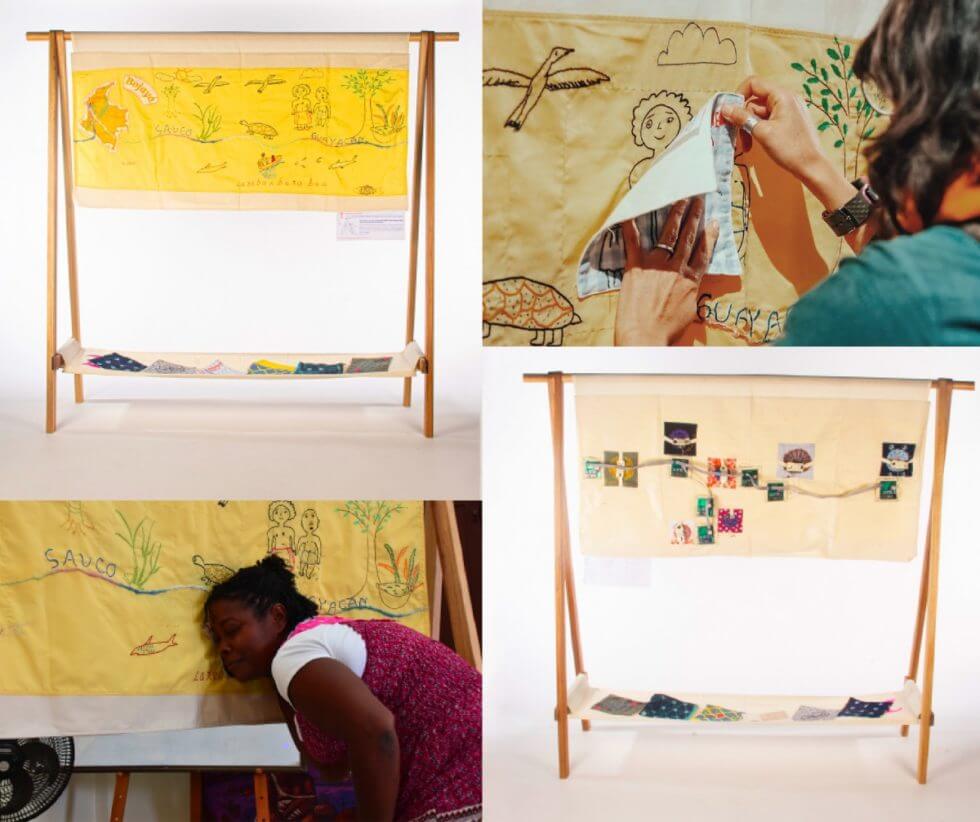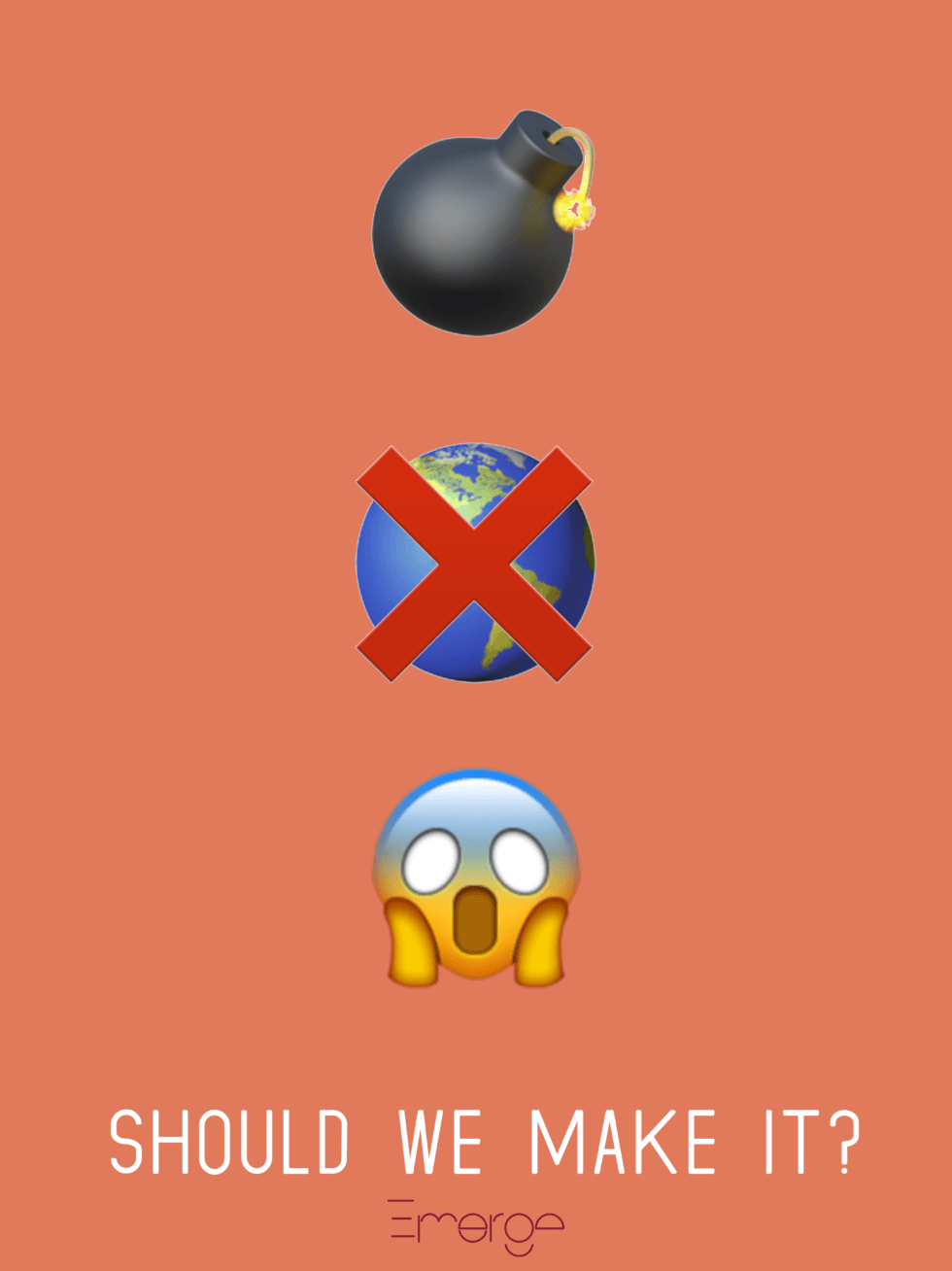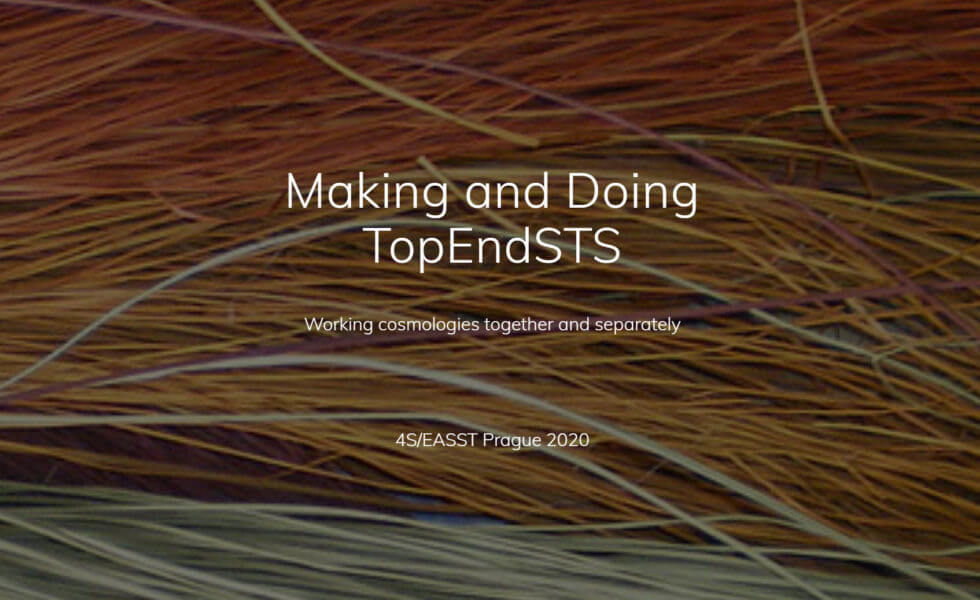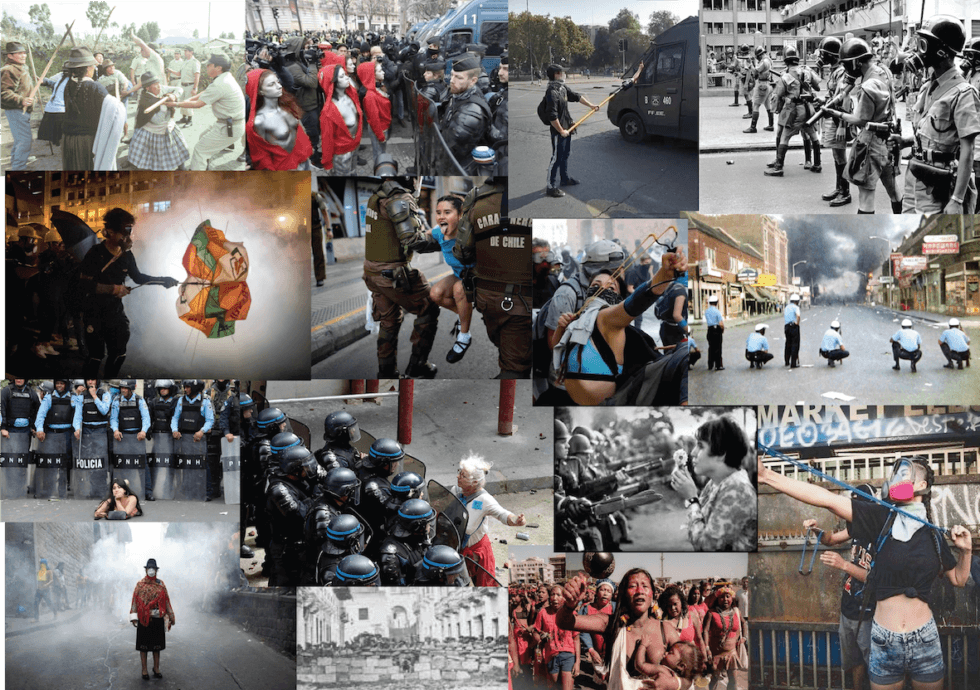

Jaime Patarroyo (Universidad de Los Andes), Nasif Rincón (Universidad de Los Andes), Camila Padilla (Universidad de Los Andes), Laura Cortés-Rico (Universidad Militar Nueva Granada), Tania Pérez-Bustos (National University of Colombia)
This exhibit is part of a project that aims to understand reconciliation in Colombia in dialogue with communities that, since having been severely affected by the armed conflict, have come together through textile crafts. In documenting memories of war, textile crafting generates spaces of common reflection and has a healing, restorative and constructive potential that negotiates memory and reconciliation. Thus, research on textile crafting (and with textile crafting) offers an opportunity to investigate reconciliation in a context that brings together everyday practice, the realities of the conflict, the possibility of healing and the rebuilding of the social fabric towards a post-conflict society.

lauren Keeler, SFIS – Arizona State University; Sean McAllister, SFIS – Arizona State University; Joshua Loughman, SFIS – Arizona State University; Steven Weiner, SFIS – Arizona State University; JP Nelson, SFIS – Arizona State University; Jan Cordero, SFIS – Arizona State University; Elma Hajric, SFIS – Arizona State University; Martin Andrés Perez Comisso, SFIS – Arizona State University
Emoji are a set of Unicode visual elements developed in Japan in 1999 and in the 2010s are an icon of digital communication. Appropriated by digital services companies such as Google, Facebook, Twitter, and Apple, they allow a nuanced, contextual, and flexible communication beyond that of plain text. The application of emoji as semiotic and playful artifacts extends beyond the digital realm to analog environments, through visual icons in forms of books, posters and other media.
Is Another World Possible? Imagining a Post-Automobility Future Through an Anti-Motor Show
Richard Randell, Webster University; Robert Braun, Institut für Höhere Studien Vienna
An alternative voice that speaks also on automotive issues is the field of automobility studies, yet it is rarely heard, as it speaks not through material artefacts but almost exclusively through the written texts of specialized, arcane academic publications with restricted circulation. The goal of this project is to develop a design blueprint for an anti-motor show, the primary purpose of which is to explore possible post-automobility futures.

Michaela Spencer, Charles Darwin University; Cathy Bow, Charles Darwin University; Yasunori Hayashi, Charles Darwin University; Leonie Norrington, Charles Darwin University; Simon West, Charles Darwin University; Jennifer Macdonald, Charles Darwin University
The TopEndSTS collective are a diverse group of knowledge practitioners working in northern Australia. Our research arises at the intersection of Indigenous and other academic traditions, is carried out under the authority of Indigenous elders, involves complex arrangements of local politics and economy, and seeks to collaboratively generate research products that work in-place.

Henry Chavez, Pontificia Universidad Católica del Ecuador; Denis Ismael Chavez Ordoñez, PUCE; José Egas, EHESS
After half a century from the Prague Spring and the French may 68, last year witnessed the rise of a new wave of global protest against the establishment. Gilets jaunes in France, pro-democracy youngsters in Hong Kong, indigenous people in Ecuador, impoverished urban population in Chile and many others social movements around the world triggered a global political shake whose consequences are still unknown. Even if their context, causes and objectives may differ from one movement to another, a common factor in all of them was the brutal and disproportioned repression applied by police or other armed forces against civilians.
